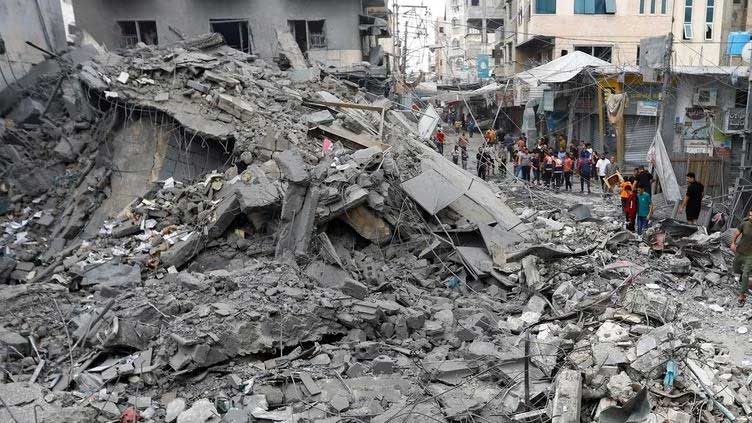UN rights chief condemns Israeli 'siege' of Gaza, militants' taking of hostages

World
UN rights chief condemns Israeli 'siege' of Gaza, militants' taking of hostages
GENEVA (Reuters) - Israeli retaliatory air strikes against the Hamas militant group struck residential buildings and schools across the Gaza Strip, U.N. Human Rights chief Volker Turk said on Tuesday, adding that "sieges" were illegal under international law.
Turk also condemned "horrifying mass killings by members of Palestinian armed groups" and said the militants' abduction of hostages was also forbidden under international law.
The Israeli military said on Monday it had called up an unprecedented 300,000 reservists and was imposing a total blockade of the Gaza Strip, in a sign it may be planning a ground assault in response to the devastating weekend attacks by Hamas gunmen.
Israel's air attacks - the worst in the 75-year history of its conflict with the Palestinians - also hit "premises of the UN relief and works agency, UNRWA (U.N. Palestinian refugee agency)," a U.N. rights office statement said, adding that civilians were among the dead and injured.
Israel vowed to take "mighty revenge" after the Hamas attack left its streets strewn with bodies. Israeli media said 900 people were killed in the attacks and most were civilians, while nearly 700 Gazans were killed in Israeli strikes, according to Gaza officials, with entire districts in Gaza flattened.
Israel's defence forces said on social media platform X that aircraft had hit military targets, including weapons storage and manufacturing sites.
Turk said Israel's "imposition of sieges that endanger the lives of civilians by depriving them of goods essential for their survival is prohibited under international humanitarian law".
"This risks seriously compounding the already dire human rights and humanitarian situation in Gaza, including the capacity of medical facilities to operate, especially in light of increasing numbers of injured," he said, adding that a siege may amount to "collective punishment".
Such acts may amount to a war crime, U.N. Human Rights spokesperson Ravina Shamdasani later clarified. The U.N. rights office's findings were based on a review of available material, including from its own monitors on the ground, she said.

